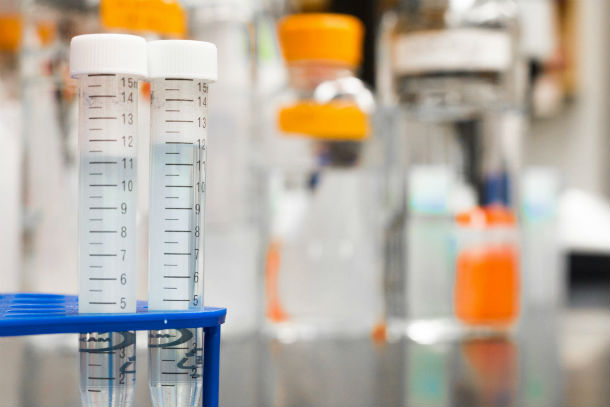Navigating the Road to a Cure: Insights into ALS Clinical Trial Design
November 13, 2024Despite decades of ongoing research, there is no cure for the debilitating disease known as ALS. This makes clinical trials crucial in the search for effective treatments and, hopefully, a cure.
At Atlantic Research Group (ARG), we are committed to helping advance the understanding and treatment of ALS. Clinical trials are an essential part of this process, as they provide critical data on the safety and efficacy of new therapies. However, designing trials for ALS presents unique challenges. We sat down with ARG’s VP of European Operations Ignazio Di Giovanna to hear firsthand how ALS clinical trials are evolving to help patients.
Understanding ALS Clinical Trials
Clinical trials for ALS aim to explore new therapies that slow disease progression, manage symptoms, or improve patients' quality of life. These studies often focus on areas like neuroprotection, anti-inflammatory agents, and genetic factors that contribute to the disease. To develop an effective trial design, researchers must consider the specific characteristics of ALS, such as its variable rate of progression and the complexity of monitoring motor function over time.
ALS clinical trials range from relatively short 6-month studies to 2-3-year studies. During the study period, each patient’s disease will progress at a different rate and in a unique way, leading to changes in the patient’s ability to participate in a trial and the level of support required. It is also essential to remember that it is not just the patient who will be directly affected by this progression in disease, as all ALS patients become reliant on support from loved ones and medical professionals.
“At ARG, we feel it is vital to discuss these difficult realities with our sponsors and ensure that the study protocol is designed in collaboration with site staff and patients themselves, in order to ensure that the study is as patient-centric as possible,” Di Giovanna stated. “In my many years of working in clinical studies, I can truly say that the ALS community, including patients, their carers, researchers and clinicians, is one of the most dedicated and committed groups of people I have ever come across and we are very proud to be able to offer our assistance wherever possible.”
Key Challenges in ALS Clinical Trial Design
Designing clinical trials for ALS is not without its hurdles. One of the biggest challenges is patient recruitment and retention, given the relatively small patient population and the progressive nature of the disease. ALS affects individuals very differently, so trials must account for variations in disease progression, making it difficult to create one-size-fits-all treatment protocols.
Common measures, such as the ALS Functional Rating Scale (ALSFRS), are used to assess motor function, respiratory capacity, and overall quality of life, but selecting the right combination of biomarkers and clinical endpoints is essential for demonstrating the true impact of a treatment.
“ARG feels it is vital to take all of the previously discussed factors into consideration, and whilst study data needs to be robust and consistent, the need to collect this data cannot be divorced from the reality that it can become more and more difficult to do so as a patient’s ALS progresses,” Di Giovanna explained. “As the study moves on, both a patient and their carer will need more and more support, physically and practically, to enable them to attend the clinics and continue to partake in the clinical study. This might include, for example, more overnight stays, specialized travel arrangements or possibly even allowing virtual study visits.”
The Role of Technology in ALS Trials
Technological advances are also playing an increasingly important role in ALS clinical trials. Wearable devices and remote monitoring tools enable researchers to track a patient's motor function, breathing capacity, general activity levels and other key metrics in real-time. These technologies provide a more comprehensive picture of how a treatment is affecting a patient’s daily life, beyond what can be observed during clinic visits.Phone-based apps, the development wearable health technologies and questionnaires that interact with measuring devices, such as respirometers, allow research sites to guide patients through obtaining certain study assessments remotely, negating lengthy and sometimes arduous trips to and from research sites— a significant advantage for both patients and their carers.
For ALS patients, who may have difficulty traveling to trial sites, remote monitoring offers a more accessible and patient-friendly approach. By reducing the burden on participants, researchers can increase patient retention and improve the overall quality of the data collected during the trial.
“ARG works with sites to establish appropriate remote tools to both allow sites to collect the study data but also to enable ARG’s monitors to remotely review this data,” Di Giovanna said. “The use of reliable internet and cloud-based devices has borne many benefits for patients participating in studies in all therapeutic areas. In the case of ALS studies, whose patients face many daily challenges, the use of wearable technology means that certain study data can be obtained with minimal additional burden to patients themselves and the added benefit of reduced carer assistance or intervention.”
Awareness Around ALS & Other Neurodegenerative Diseases
Di Giovanna knows firsthand the power that awareness and fundraising can have on our understanding of neurodegenerative diseases like ALS. He recently embarked on a journey to spread awareness of these diseases, learning unexpected lessons along the way.
“Earlier this year, I undertook the Camino de Santiago, walking 550 miles across northern Spain from the French Pyrenees to Santiago in North West Spain,” Di Giovanna said. “During my walk, I was privileged to meet many people from all areas of the world.
“My aim was to raise awareness of ALS and funds on behalf of the UK’s Motor Neurone Disease Association (MNDA). Speaking to my fellow pilgrims, it soon became clear how many people’s lives are touched by ALS on a regular basis…be it through their direct family members, relations, friends or acquaintances.
“Despite walking for nearly 6 weeks, the end of the walk came too soon for me. I was very grateful to have had the opportunity to embark on this journey, both physically and mentally. We can all, at times, take our ability to walk, to talk and communicate with our loved ones and friends, for granted. Unfortunately, this is not the case for the majority of patients with ALS, particularly as their symptoms worsen with disease progression. I dedicate my walk to all ALS patients and hope that the funds I managed to raise for MNDA go in some way, even if only very small, to further ALS research.”
Collaborative Steps Toward a Cure

The fight against ALS requires a collaborative effort across the research community. At ARG, we work closely with sponsors, patients, and advocacy groups to design trials that not only address the scientific complexities of ALS but also prioritize the needs and experiences of patients.
Clinical trials are not just about data collection; they are about improving lives and offering hope to those facing a difficult disease. By focusing on patient-centric design and innovative trial methodologies, ARG is helping to lead the way in ALS research. Concrete advancement in disease therapies and progressing clinical research both rely on obtaining clear and unequivocal data, which can make clinical studies both restrictive and arduous for participating patients.
ALS studies present specific challenges in research due to a patient’s short life expectancy. Patients generally have a life expectancy of 2-3 years following confirmation of ALS diagnosis, during which they will experience degeneration in mobility, speech and other physical activities, resulting in more reliance on carers and physical aids.
“So, taking part in a clinical trial means patients are dedicating a considerable portion of their remaining time and energy,” Di Giovanna noted. “It is therefore our duty to be respectful of this and it is beholden to us to make use of anything in our reach to make ALS clinical trial as flexible and as patient and carer focused as possible.”
The journey toward a cure for ALS is long and complex, but clinical trials represent the most promising path forward. With thoughtful trial design and approaches centered on patients and their carers, we at ARG are proud to contribute to the ongoing search for effective treatments.
Together, with the research community and patients alike, we are navigating the road to a cure for ALS.



